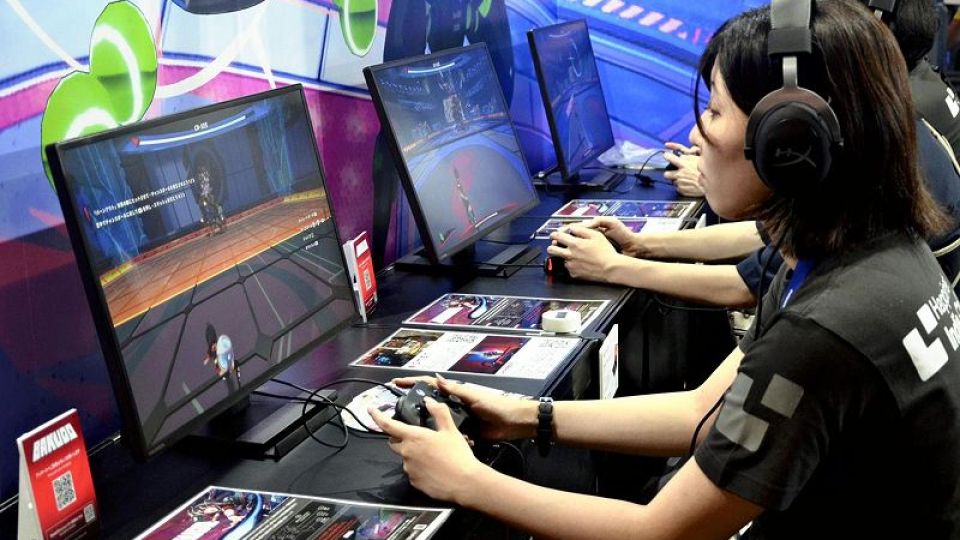September 10, 2025
TOKYO – Video games created by small teams on limited budgets are gaining attention in Japan.
Many of these indie games have an originality that is not found in the Triple-A titles produced by major companies. Some Japanese indie games have found large-scale success and national recognition, and expectations for Japan-made games are also growing overseas.
BitSummit, one of the nation’s largest indie game exhibitions, took place in Kyoto in July, introducing new games and playable demos from around the world, including titles available on the Nintendo Switch 2, Nintendo Co.’s new video game console.
At the event, Kyoto-based Q-Games Ltd. showed off its action game “Dreams of Another,” which is set to be released in October. The game’s key feature is its use of virtual reality. “We’ve been receiving positive feedback from visitors,” said Q-Games’ Mayu Kikutake. “We hope the game sells well outside Japan, too.”
Indie game developers are often small teams comprised of a few members, which keeps costs down. Small-scale software, which includes indie games, can cost less than ¥100 million to develop, while Triple-A titles for home consoles and computers can cost billions, according to the Computer Entertainment Supplier’s Association.
Originality key to popularity
Many indie games have found success thanks to their originality. Well-known examples include “Minecraft,” a game developed by Swedish company Mojang Studios in which players can create their own worlds by constructing buildings and other objects with 3D blocks. Another famous title is “Black Myth: Wukong,” which was produced by Chinese company Game Science.
In Japan, “The Exit 8” was adapted into a movie in August after growing in popularity. In the game, the player walks through an underground passageway in search of an exit. Meanwhile, “Suika Game” (watermelon game), developed by Aladdin X Inc. — a company that sells projectors — exploded in popularity despite its simplicity.
Translation hurdle
As hit titles continue to be developed, the question will shift to how to market the games outside Japan. According to the Cabinet Secretariat, the export size of Japan’s content industry, including video games, is ¥4.7 trillion. The government launched a full-scale support system for indie game developers and others in 2024.
Adapting to different languages and cultures is another challenge. Japanese game companies excel in developing role-playing games, in which the quality of the translation significantly influences the players’ satisfaction. However, one official of an indie game developer expressed concern, saying, “Securing high-quality translators is becoming increasingly difficult.”
Hideki Yasuda, a senior analyst at Toyo Securities Co. who is knowledgeable about video game industry trends, said, “It’s becoming necessary to find ways to reduce game development costs, such as by utilizing AI translation and other tools.”

